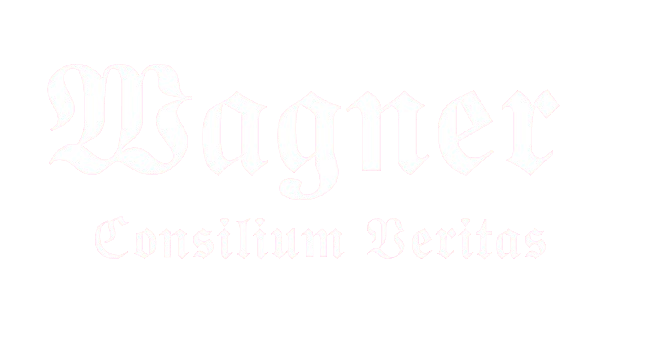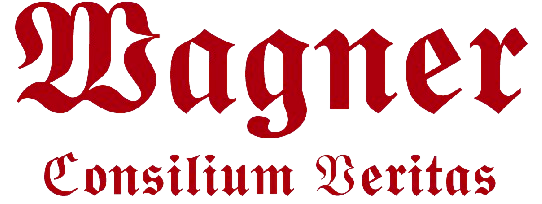
PhD Cand. Jack Traynor
| PhD | Ireland | Expert in Political History
Autor: PhD Cand. Jack Traynor
Expert in Political History

Research
The Decline of the Study of Political Economy
October 2024
“Political economy” has largely fallen out of fashion and where it has not, it has often been reduced to mere business economics. The great value of political economy is that it takes the economy, the society, and the state as an interconnected organism and analyses its physiology (1). It keeps economic analyses grounded firmly in reason. Discussion of economics can frequently drift into the extreme abstract, whilst basic realities are entirely ignored. Professional economists often suffer from the “curse of knowledge” and find themselves incapable of stepping back and appreciating the value of a hard-nosed examination of political economy. It allows people of various beliefs to comprehend the world from a generally accessible viewpoint, requiring no special belief.
The tradition of political economy is inherited from the great capitalist thinkers of the seventeenth and eighteenth centuries. Chief among them were William Petty, Adam Smith, David Ricardo, and John Stuart Mill. The most valuable part of the work of Marx and Engels was likely their work on political economy, which was a development of ‘classical’ political economy. The overlap between political economy and the traditional history of political thought is considerable. This can be seen in human terms, for instance Petty acted as secretary to Thomas Hobbes and served as a dutiful pupil to that great English realist philosopher.
The Marxist contribution to political economy is discernible within twentieth-century historical writing, particularly the scholarship of academics associated with the historians’ group within the Communist Party of Great Britain (2). Historian of the English Revolution, Christopher Hill, tilted at this on occasion, describing the historians’ group as ‘the best academic historical training I ever got’ because it provided the tools to understand a ‘total history’ composed of various elements. ‘I see literature and religion and economics and history as all part of a single picture’, he stated (3). Hill’s work and its focus on the English Revolution (Cromwell’s revolution) particularly incorporated an understanding of political economy absorbed from his Marxist political organising.
Planned Economy and its Crisis
Werner Kreitz (4) observed in his study on the planned economy of the Soviet Union that Marx’s theoretical starting point according to which the relations of production determine human history, i.e. human consciousness in all its manifestations (historical materialism), was false. But Kreitz appreciated the value of Marx’s contribution to political economy. He considered the nature of the contradiction between the social form of production and private appropriation within the capitalist system and the resulting lack of planning in the capitalist economy articulated by Marx to be compelling. Kreitz’s favoured nostrum to eliminate this contradiction was a planned economy. From his study of the Soviet planned economy Kreitz came to the conclusion that despite all its heavy emphasis on Marx, Russia’s economic development was far more linked with unique aspects of the Russian national character (5). Joseph Stalin’s doctrine of socialism in one country certainly lent credence to the observations made by Kreitz.
Whilst Kreitz believed Soviet economic development had moved in its own particularly Russian direction, the common thread of support for a planned economy naturally ran through twentieth-century left-wing writings. Pushing back against this trend in the 1980s, American economist Don Lavoie saw centralised planning as myopic and failing to account for the rapidly changing nature of economic activity. He hoped to appeal to the political left by charting a tradition of intellectual opposition to command economies from the era of the English revolution, highlighting the activities of groups like the Levellers (which were examined by Hill). Lavoie’s case against central planning rested partly on the theory that rather than obliterating a centralised elite which ruled sections of the economy as their own personal fiefdoms, a policy of central planning would just entrench a new plutocracy (6). Published in 1985, Lavoie’s National Economic Planning: What is Left? was not widely engaged with by the left. By then, Gorbachev had come to power in the Soviet Union and was incrementally moving towards the disestablishment of the Marxist state. But over thirty years before glasnost and perestroika, the eastern bloc had jettisoned the analysis of political economy which was Marx’s great contribution to economic thinking. The Marxist political machines in both west and east were simply tied to build a consensus that the Soviet monolith must be disassembled. The fiercest resistance came from Russian nationalists and nostalgists, who vaguely couched their rejection in the language of Marxist-Leninism largely because it was the usual opposition camp to run to.
Decline of Political Economy on the Left
The decline on the left-wing of the study of political economy can be traced to the post-war decline of radical left-wing parties in western Europe. Whilst an understanding of Marx’s work as essential political economy has never required submission to any totalising worldview, Marxist-Leninism is a different matter (7). Moscow-line communist parties experienced their heyday immediately after World War Two. In France, the communist party (PCF) played a crucial role in the resistance to Nazi occupation, which earned it considerable prestige. Its popular support could be seen by the PCF’s first place finish in the 1945 legislative elections to the French constituent assembly. De Gaulle elevated communist ministers to his post-war cabinet, giving them considerable reign over economic affairs. In Italy, the first post-war elections, held in 1946, saw the victory of the Christian Democrats; however, the Socialist Party (PSI) and Communist Party (PCI) polled a collective 40%. The PCI was the largest communist party in western Europe in terms of membership, with over two million members by 1946. In Greece, a bitter civil war was fought between the communist-dominated EAM, which had successfully liberated the country without the need for Allied intervention, and the British-backed Greek royal government.
Post-war, the western communist parties were treated by Stalin as mere instruments to be utilised to lobby for more sympathetic policies towards the Soviet Union. Their dependence on Moscow was tested by critical events such as the Soviet response to the 1956 Hungarian revolution and the Warsaw Pact invasion of Czechoslovakia in 1968. Both external events generated severe splits within most western communist parties. Meanwhile, in May 1968 the uprising of the French student radicals proved to be a flash in the pan, partly due to the PCF’s bungled handling of the situation. The generous concessions extracted by the French trade union movement, the Confédération Générale du Travail, from the government in exchange for an end to strikes also produced a withering away of the radicalism of May ‘68.
Partly disillusioned with the harshness of the Soviet world, Marxist thought among western intellectuals was gradually channelled away from its analysis of political economy and towards the development of an all-encompassing philosophy. There has been much theorising about the role of the Frankfurt school in this process, but I do not especially rate this view. A greater influence in the move away from political economy was the development of Marxist philosophy by Louis Althusser in the 1970s. It provided a common lexicon for Trotskyists and western Marxists. In the final decades of the Cold War, most western European communist parties moved towards ‘Eurocommunism’. Trying to chart a different path from that set down by the Soviet monolith, the communist parties of Spain, France, and Italy began to ‘modernise’ and suddenly dropped many of the central dogmas of Marxist-Leninism. This trend predated the collapse of the Soviet Union.
The Marxist states abandoned the most important inheritance from Marx (political economy), and they eventually collapsed. But the vacuum was not filled by a renewed capitalist school of political economy championed by the victors of the Cold War. Margaret Thatcher’s view was famously that “there is no such thing as society, only individual men and women and their families” (and their “choices”). This illustrated the capitalist world’s distance from the classical political economy which she claimed to uphold (8).
Students of political economy should recognise with clear heads the valuable works bequeathed to us by the full sweep of writers on the topic. The dominance today of finance capitalism and the fact that most money is almost universally digital should perhaps give us pause to consider whether a renewed engagement with political economy could better guide us in the turbulent years to come.
(1) This definition was offered by Brendan Clifford in the 1992 edition of The Economics of Partition.
(2) For example: E.P. Thompson and Victor Kiernan.
(3) International Socialism, vol. 56, p. 128.
(4) Kreitz was an inter-war German economist whose work was imbued with crisp analysis and alacrity but who has largely been overlooked.
(5) Werner Kreitz, Kapitalismus, Sozialismus, Planwirtschaft (1935).
(6) Don Lavoie, National Economic Planning: What is Left? (1985)
(7) Lenin’s Development of Capitalism in Russia is a significant work of political economy. The Marxist-Leninism which became the state ideology of the Soviet Union gradually dropped political economy and the Soviet Union subsequently stagnated.
(8) Thatcher famously was said to carry a copy of Adam Smith’s The Wealth of Nations in her handbag.


